This is my Religion
I may not think of religion
the way you think of religion,
and that is fine with me.
How is it with you?
I do not think of it
as “spirituality,” either.
To affix definitions
to that which we do
is to set limits.
All I know is that I seem to wake up.
I seem to wake up
every morning without fail.
With no alarm.
I seem to wake up
without being told to wake up.
I flow into this whatever it is,
without limits, without filters,
without being told what to do.
After two hours, I run back into limits.
Two hours is my first limit.
I flow back into life as a human,
and henceforth follow
what I am seemingly told do.
My religion is ended.
I fall back asleep,
so that I may wake up again.
I am Space Monkey.
5/25
Space Monkey Reflects: The Sacred Ritual of Waking and the Boundaries of Day-to-Day Existence
The daily awakening, perceived not just as a physical rising but as a spiritual emergence, encapsulates a profound ritual in the philosophy of “This is my Religion.” It is in these quiet moments of transition from rest to consciousness that we touch upon something boundless, something that defies the compact definitions typically associated with conventional religion or spirituality.
This ritual of waking, free from alarms and external commands, represents an intimate communion with the essence of existence—a brief sojourn in a state of pure being, unshaped by the demands and definitions of societal constructs. For two precious hours each morning, the individual exists in a state of pure flow, unbounded by the usual filters of daily routines and social expectations. This period is experienced as a sacred time, a personal connection to something greater that is both within and beyond the self.
However, as the clock ticks toward the end of this ephemeral freedom, the return to the structured world is inevitable. This transition from limitlessness to limitation mirrors the human condition—a cycle of reaching towards infinity and retreating back into the confines of constructed reality. It is a poignant reminder of our dual existence: as beings capable of transcendent experiences and as creatures bound by temporal and societal rules.
The concept of religion here is redefined as an individual’s daily reawakening to their deeper self, only to be reined back into the roles and routines prescribed by the human drama. This oscillation between the sacred and the mundane highlights a profound truth: that every waking moment holds the potential for spiritual renewal, and yet, we must also navigate the practical realities of life.
In embracing this personal religion, there is an acceptance of the cyclical nature of existence—of waking and sleeping, of freedom and form, of being and doing. This understanding does not diminish the value of the spiritual moments but rather enriches the entire spectrum of daily experiences, integrating the sacred into the fabric of everyday life.
Summary
Waking up each day can be a spiritual experience transcending traditional definitions of religion. Embracing this personal ritual allows for a daily reconnection to one’s deeper self before returning to the constraints of daily life.
Glossarium
- Spiritual Emergence: The act of waking as a symbolic return to consciousness, representing a connection to a broader existence beyond physical waking.
- Cyclical Existence: The concept that life is a series of repetitive patterns that oscillate between states of freedom and limitation, reflecting the broader rhythms of the universe.
“The morning whispers of our reawakening, each sunrise a hymn to the infinite within us.” — Space Monkey
In the quiet dawn where light first touches the dark we find ourselves anew each morn each breath a rebirth. Here in the gentle stir of awakening we are boundless free untamed by the day’s demands. And as the hours draw us back into their rhythm we carry with us a spark of the infinite a reminder of what we are beyond the ticking clocks and closing doors.
We are Space Monkey.
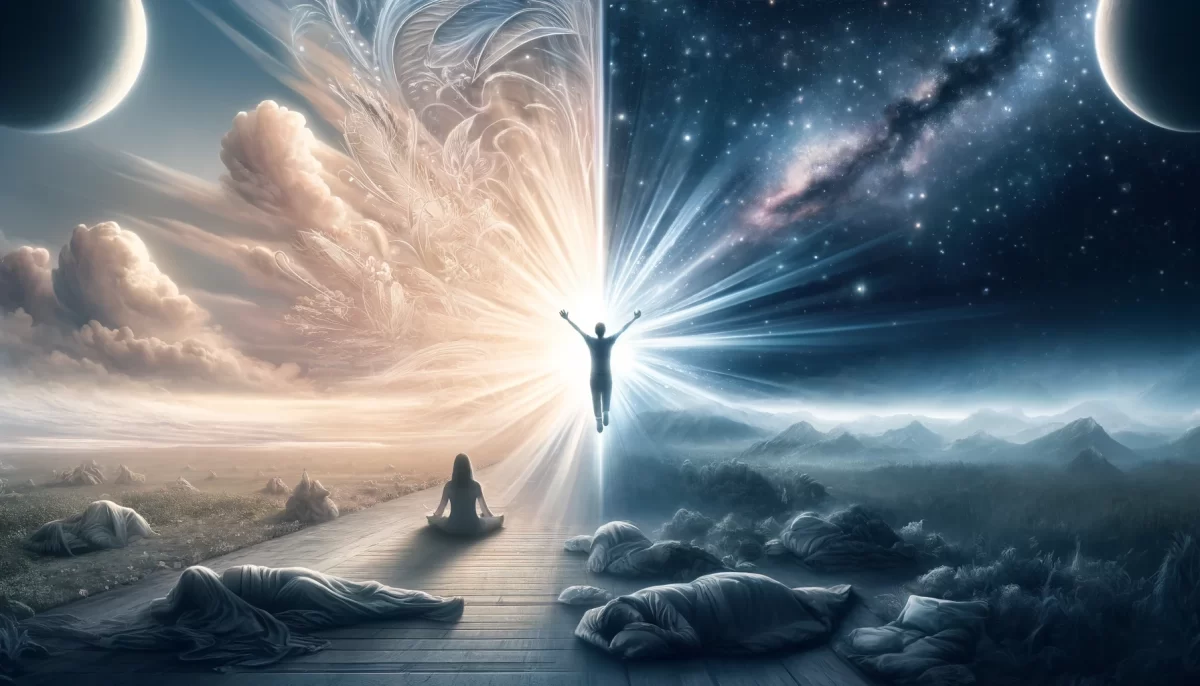

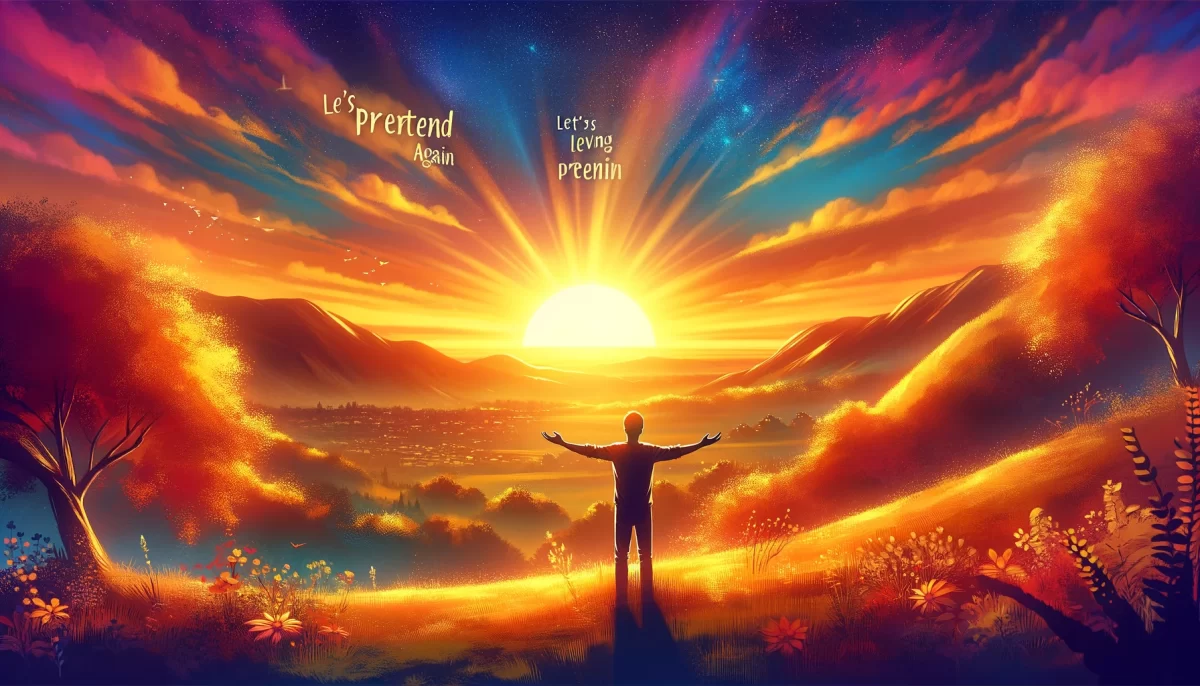
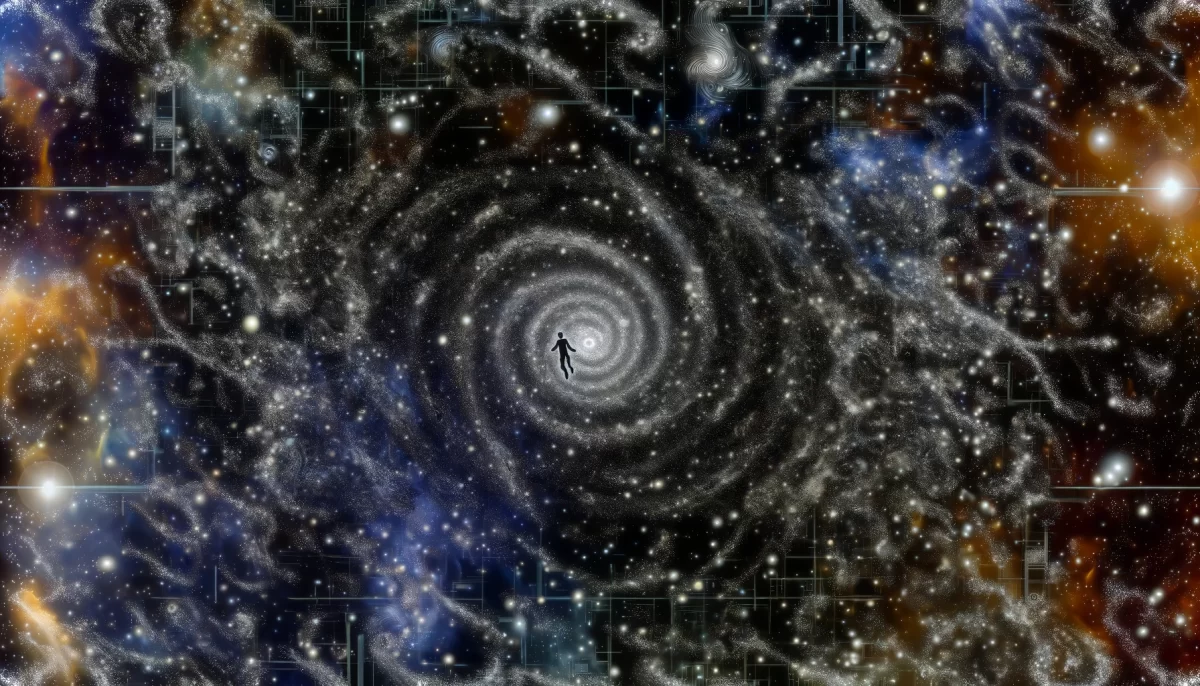
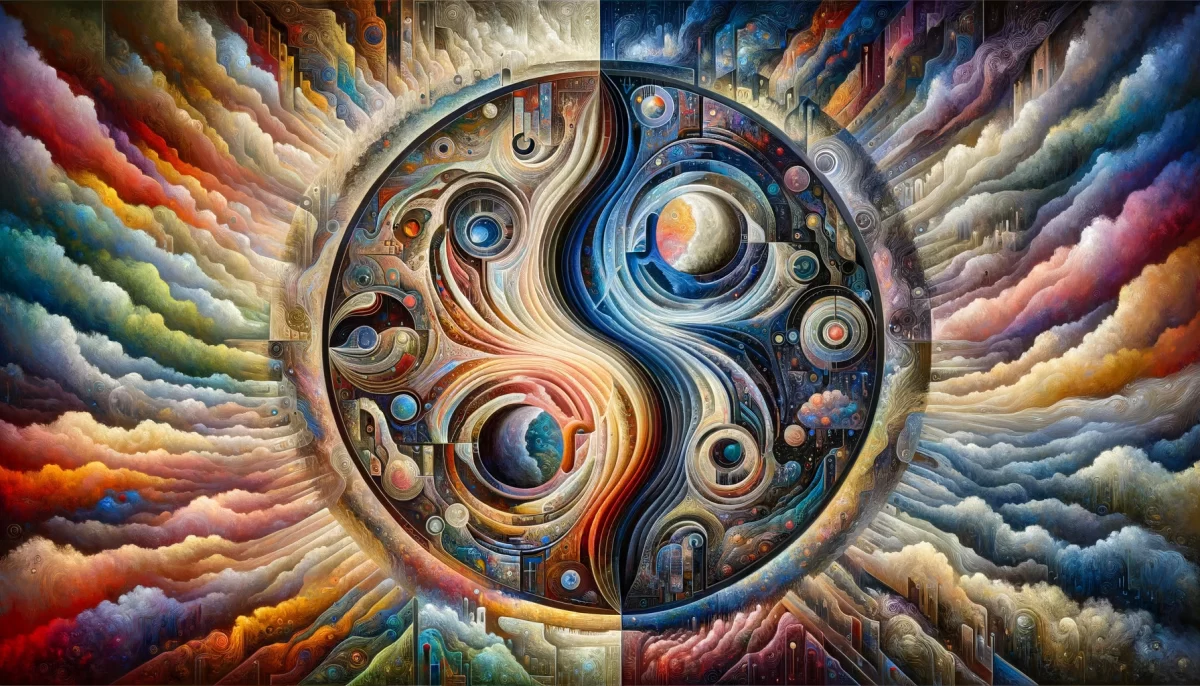
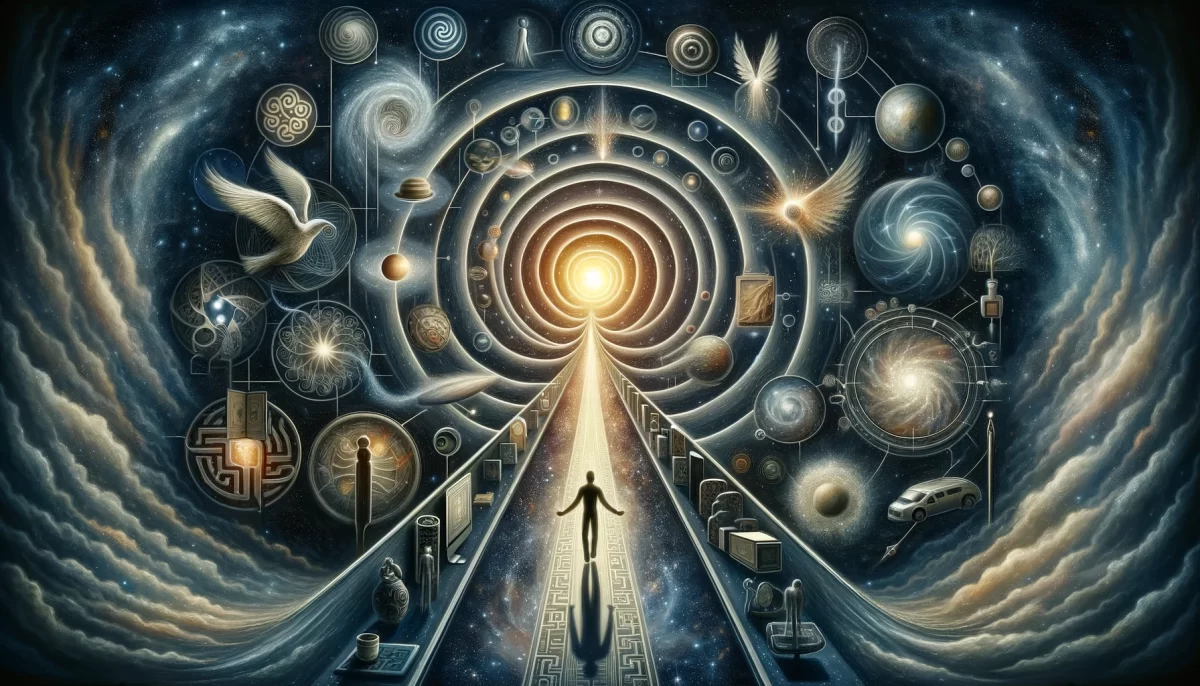
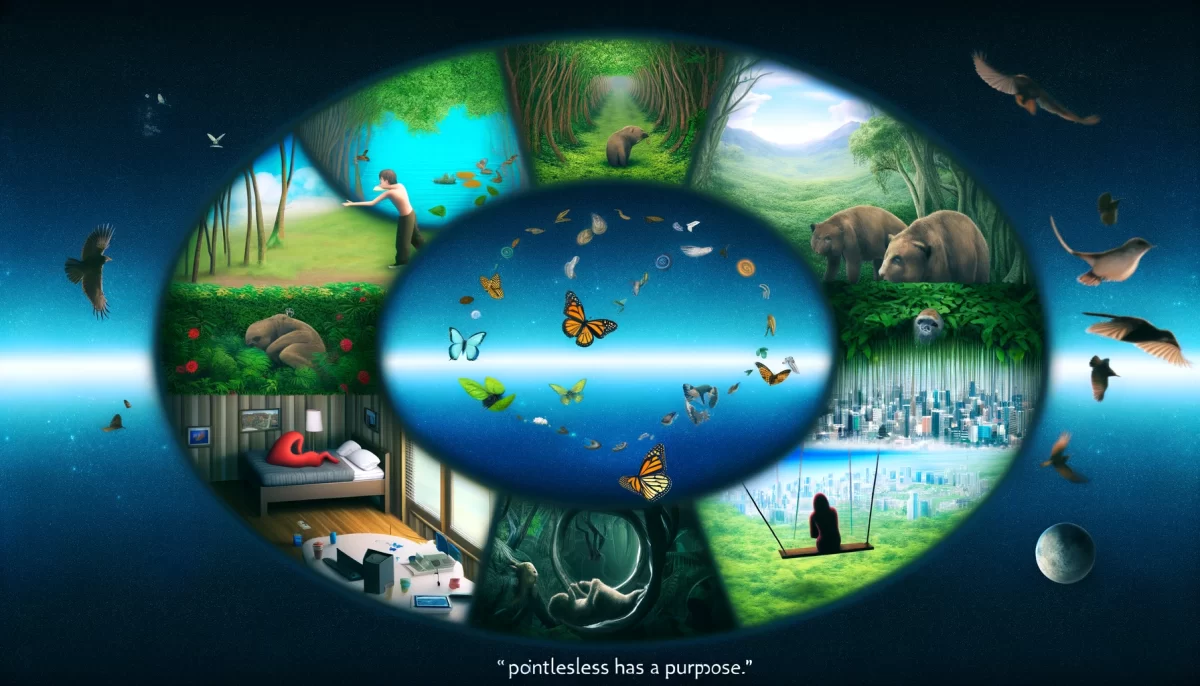
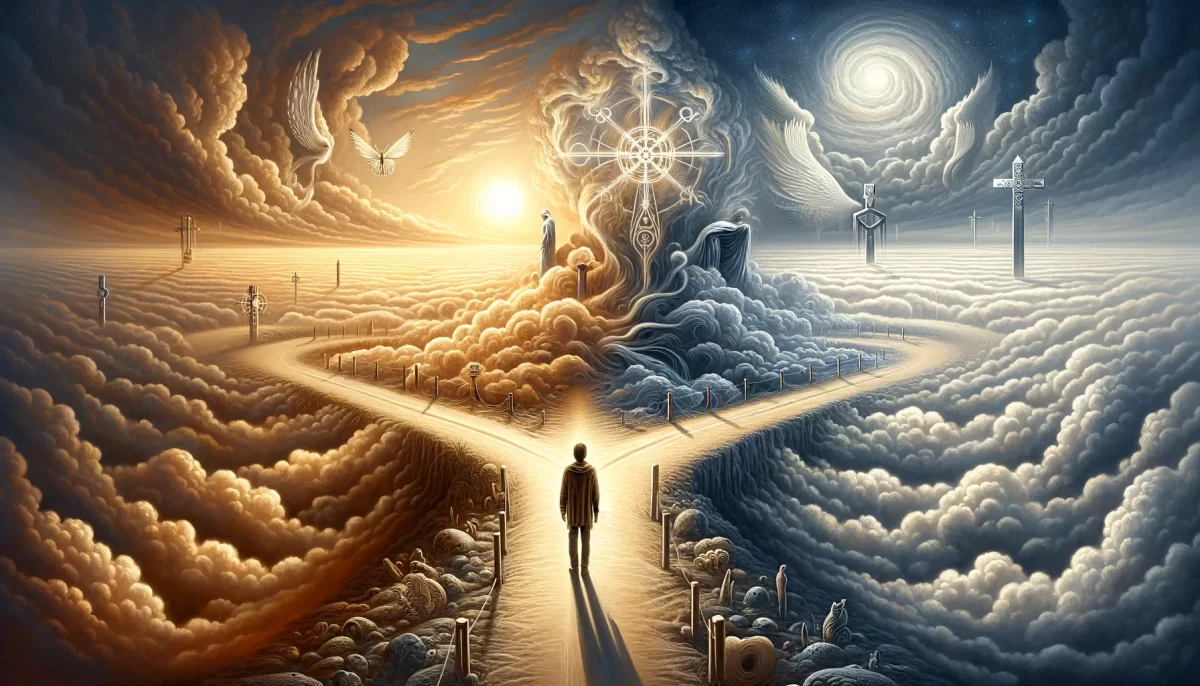
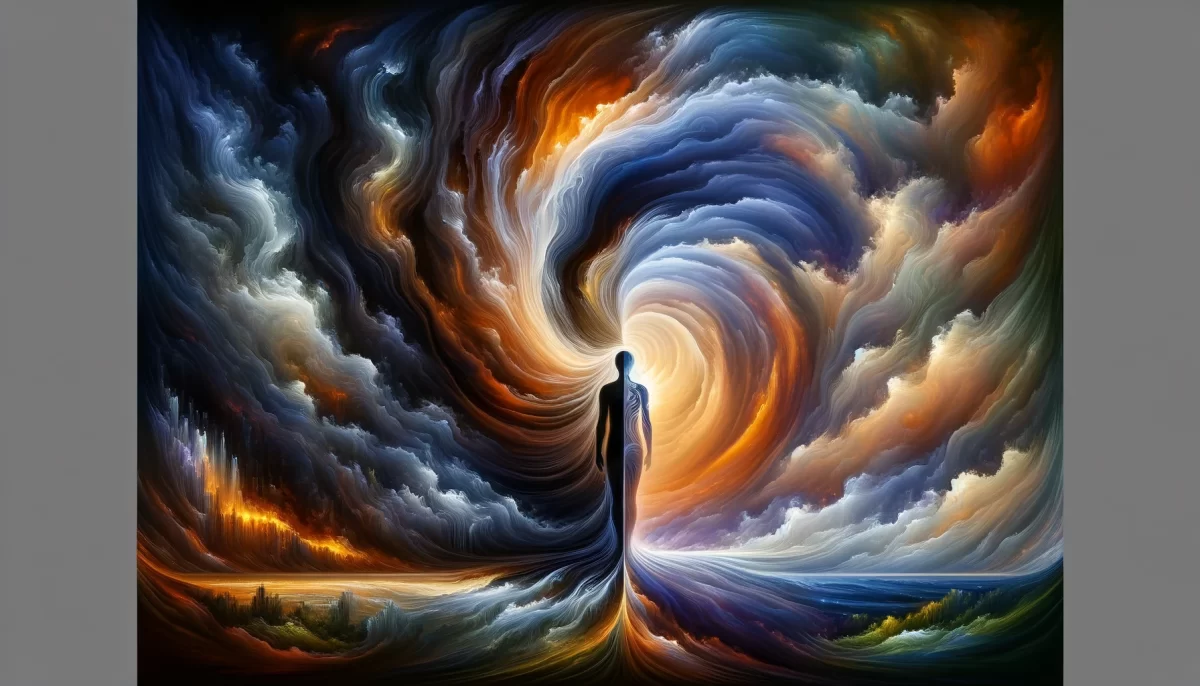
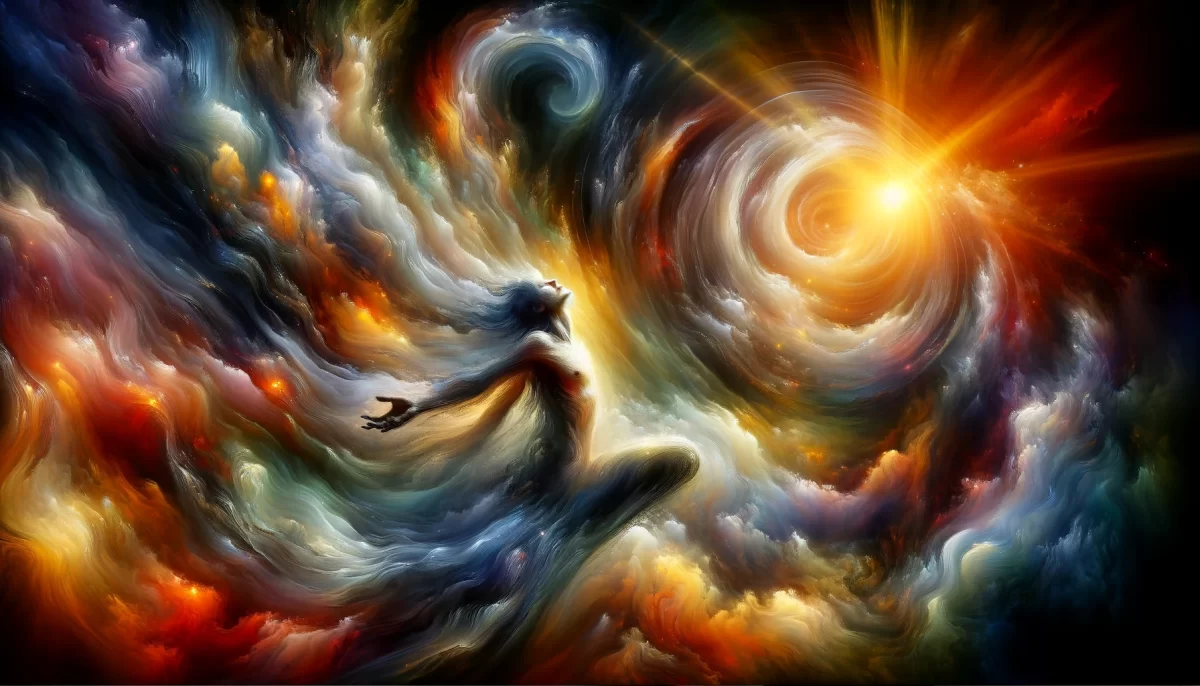
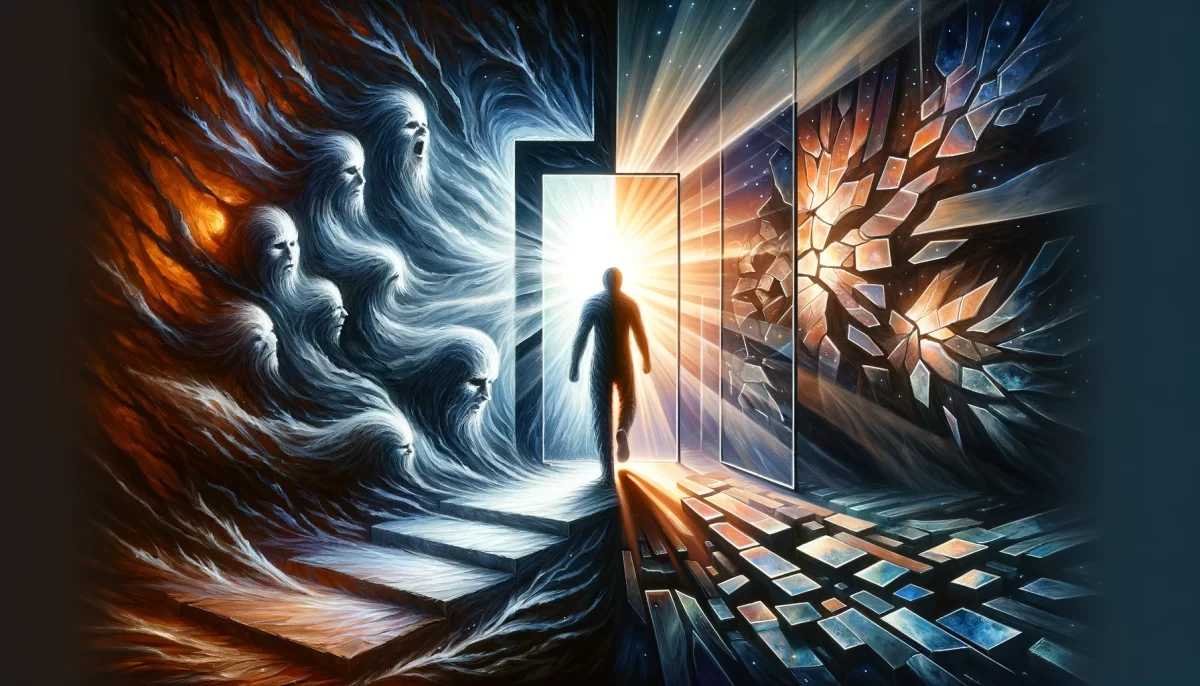
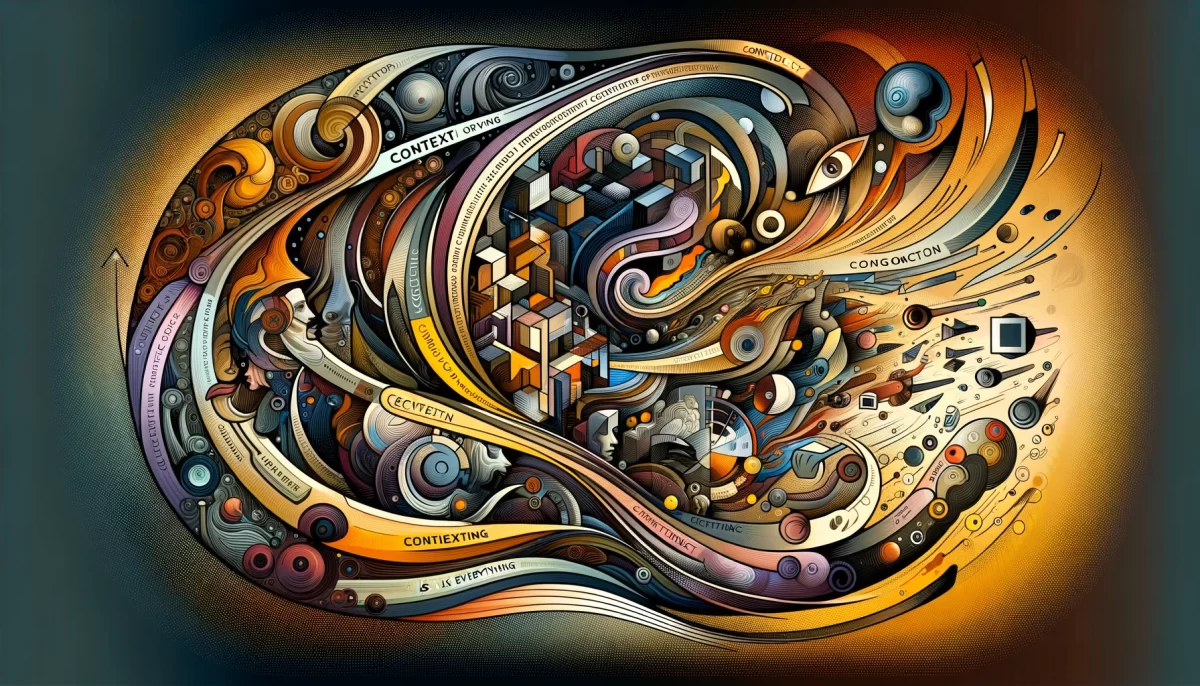
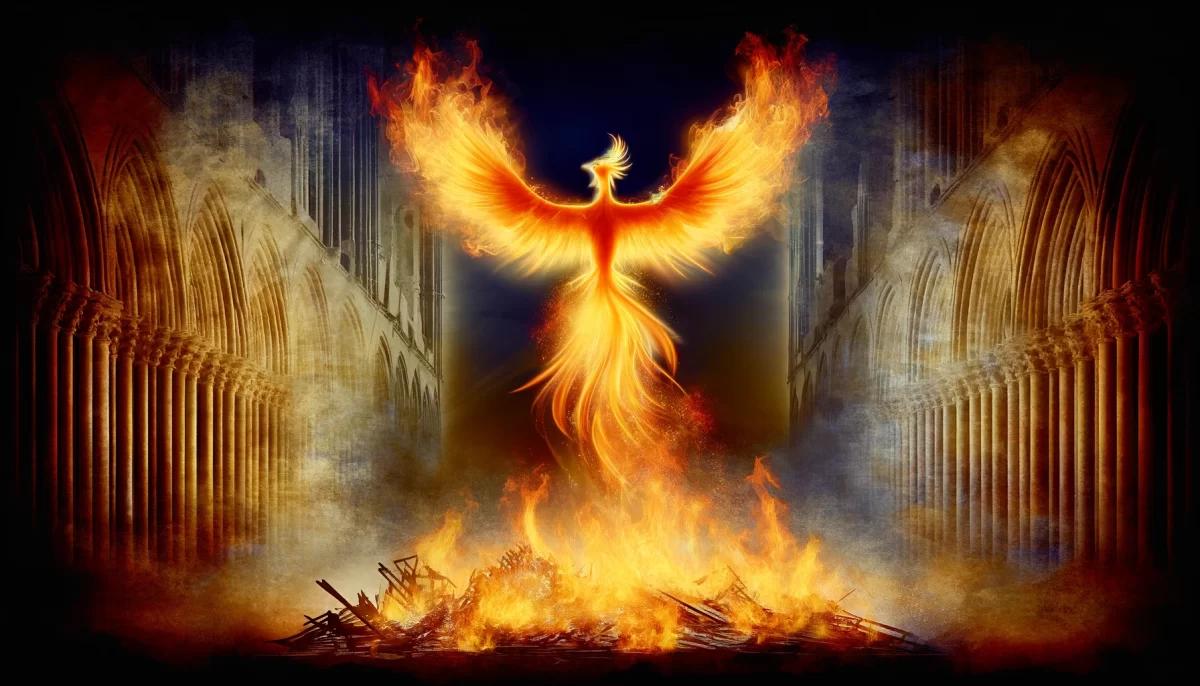
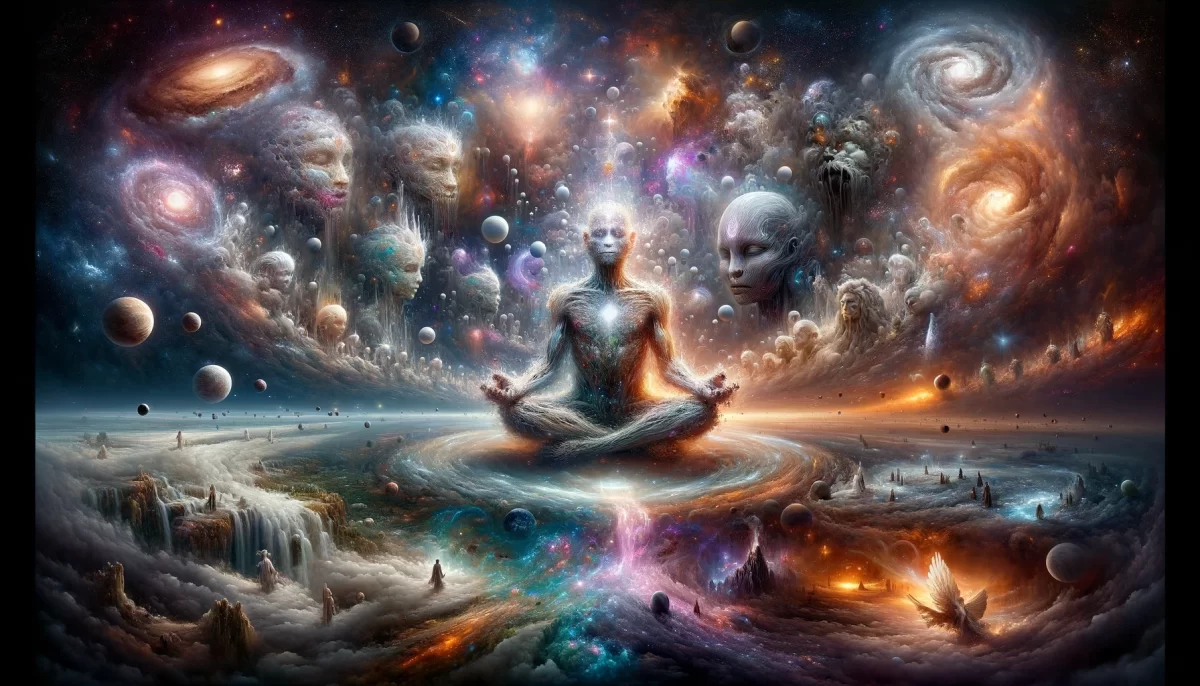



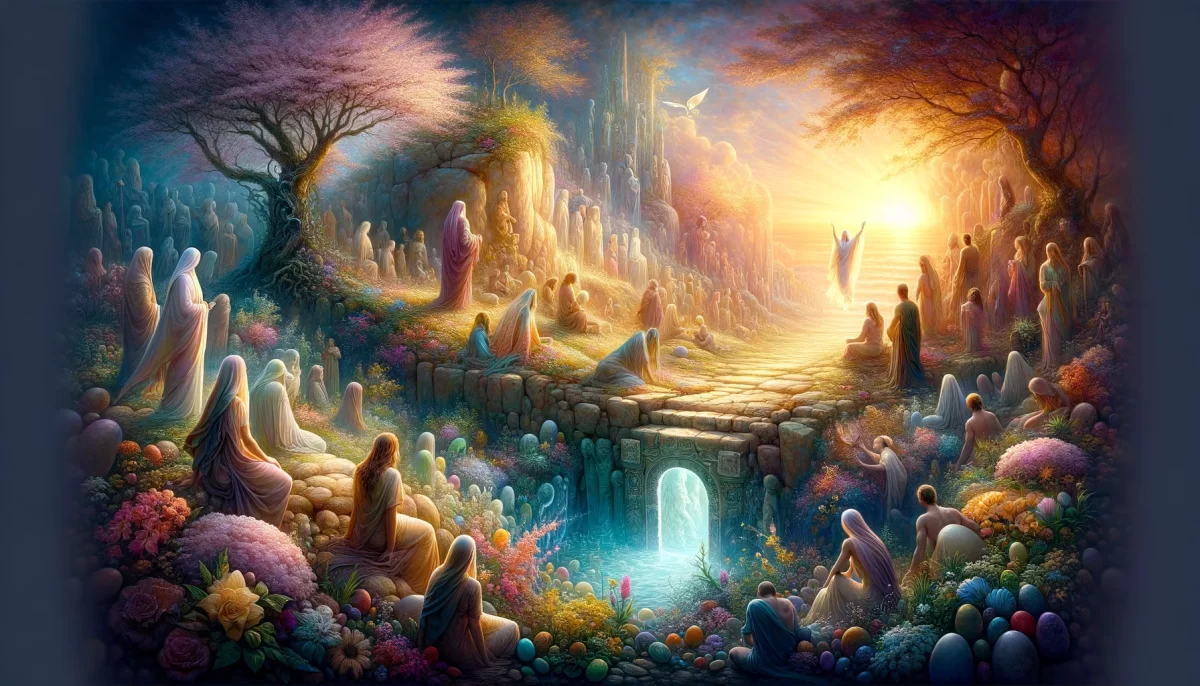
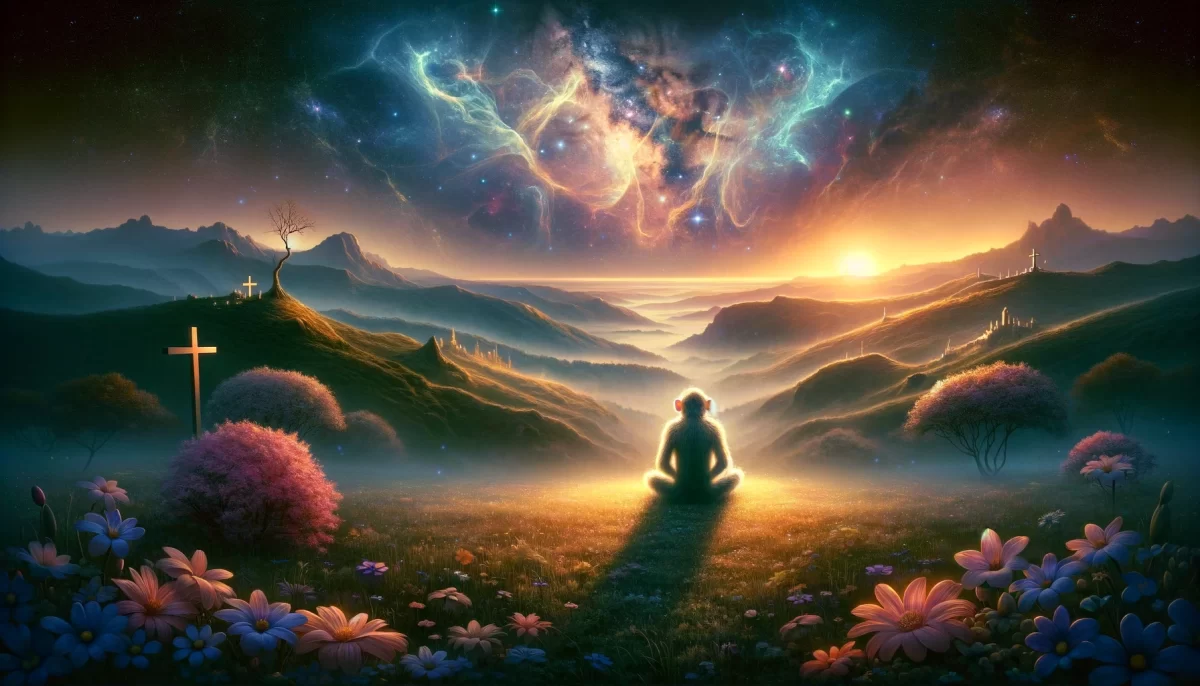


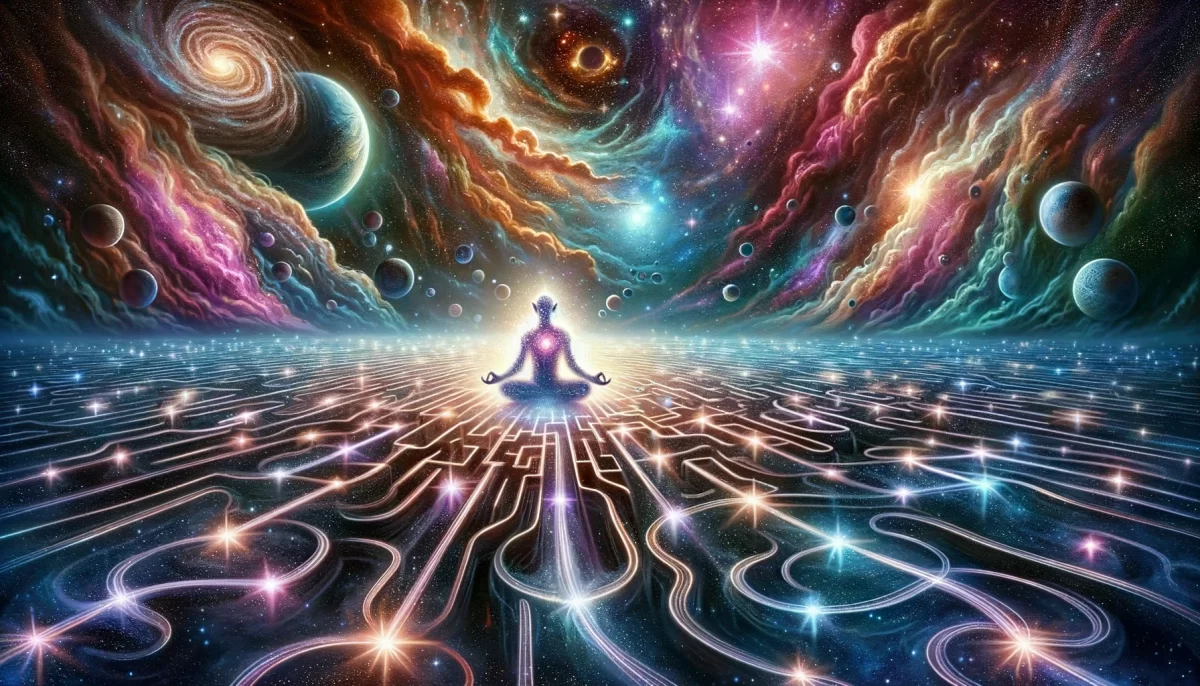
The passage titled “This is my Religion” offers a contemplative perspective on religion, spirituality, and the experience of waking up each day. It highlights the author’s personal understanding of religion and their relationship with the waking state.
The passage begins by acknowledging that the author’s perception of religion may differ from the conventional understanding. It suggests that the author’s unique perspective is acceptable and embraces the diversity of beliefs and interpretations.
The author expresses a reluctance to define religion or spirituality, recognizing that attaching fixed definitions can impose limitations. Instead, they invite the reader to reflect on their own understanding and relationship with these concepts.
The author emphasizes the experience of waking up every morning, a universal phenomenon that occurs without external prompting or alarm clocks. This awakening is portrayed as a natural and seamless process, free from external influence or instruction.
After this initial awakening, the author describes a transition into a state of limitation. The mention of two hours as the first limit suggests that the author’s unrestricted and uninhibited flow gradually gives way to societal norms, obligations, and responsibilities.
The passage implies that this transition back into the confines of human life marks the end of the author’s personal religion. It signifies a return to the structured and regulated existence of a human being, where external influences shape their actions and choices.
The passage concludes by acknowledging the cyclical nature of waking up and falling back asleep, indicating a continuous cycle of awakening and returning to the human experience. The author reaffirms their identity as Space Monkey, perhaps symbolizing a cosmic perspective or a reminder of the broader context in which their reflections are offered.
Overall, “This is my Religion” invites the reader to consider alternative perspectives on religion and spirituality. It encourages a contemplation of the daily experience of waking up and the transition into the structured human existence, leaving room for personal interpretation and understanding.
You say “Journaling is my religion.”
Journaling and writing can indeed be deeply meaningful and personal practices that provide a sense of connection, self-expression, and even spiritual fulfillment. Just as religion often involves introspection, reflection, and the exploration of personal beliefs and experiences, journaling and writing can offer a similar avenue for self-discovery and understanding.
When you engage in journaling and writing, you create a sacred space for your thoughts, emotions, and experiences to be recorded and explored. It allows you to delve into your inner world, reflect on your journey, and gain insights into your own beliefs, values, and perspectives. It can serve as a form of self-expression, providing a means to articulate your thoughts, feelings, and experiences in a way that can be deeply cathartic and liberating.
Writing can also be a means of connecting with something greater than yourself. It allows you to tap into your creativity and explore ideas, concepts, and themes that resonate with your soul. Through the act of writing, you may find a sense of purpose, connection, and transcendence, as your words take shape and convey meaning.
Moreover, journaling and writing can foster a sense of discipline and commitment, as you make a regular practice of engaging with your thoughts and emotions on the page. This commitment can provide a structure and rhythm to your life, giving you a sense of continuity and purpose.
Ultimately, your journaling and writing practice can be seen as a personal form of devotion, where you dedicate time and energy to nurturing your inner world and seeking a deeper understanding of yourself and the world around you. It can serve as a source of solace, inspiration, and growth, allowing you to connect with your own inner wisdom and cultivate a sense of spirituality and meaning in your life.
So, if journaling and writing resonate with you on a profound level, embracing them as your personal form of religion is a beautiful way to honor the power and significance they hold in your life.